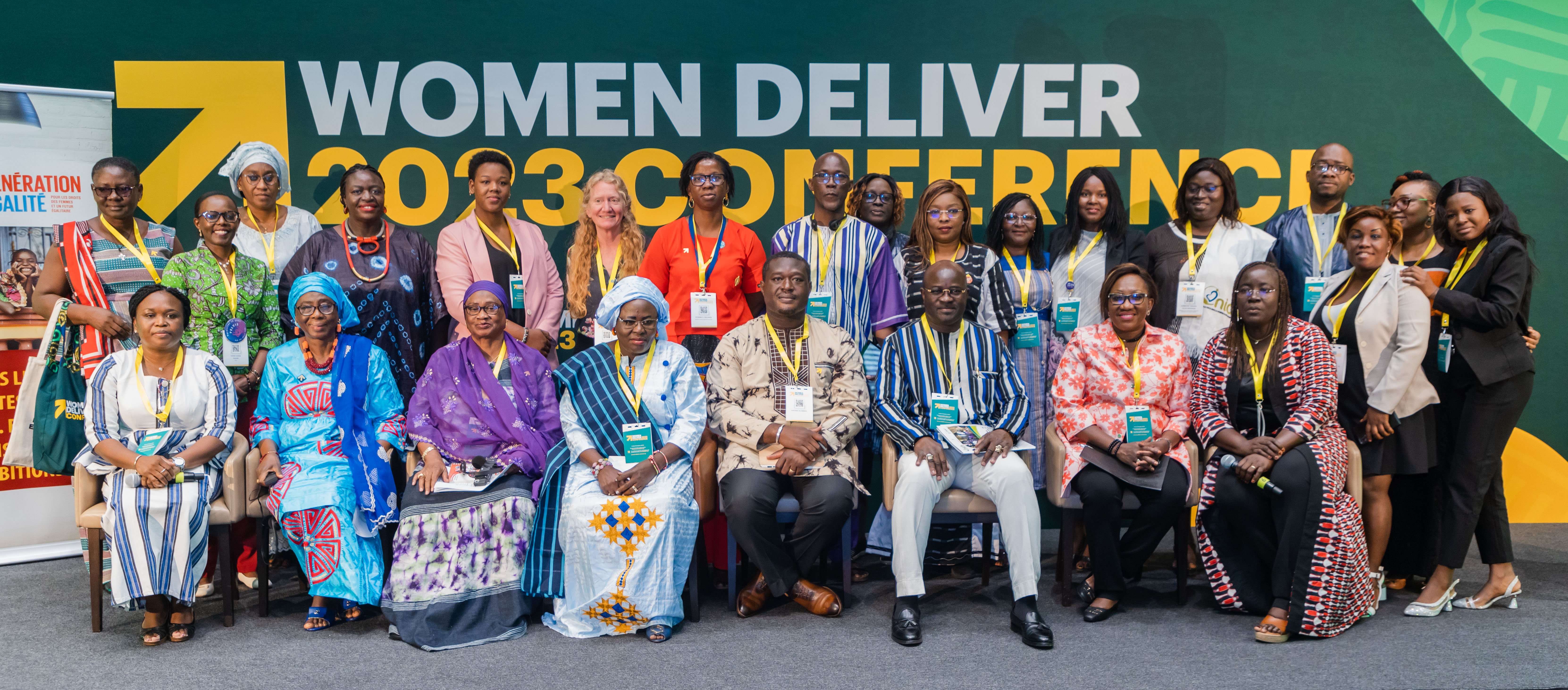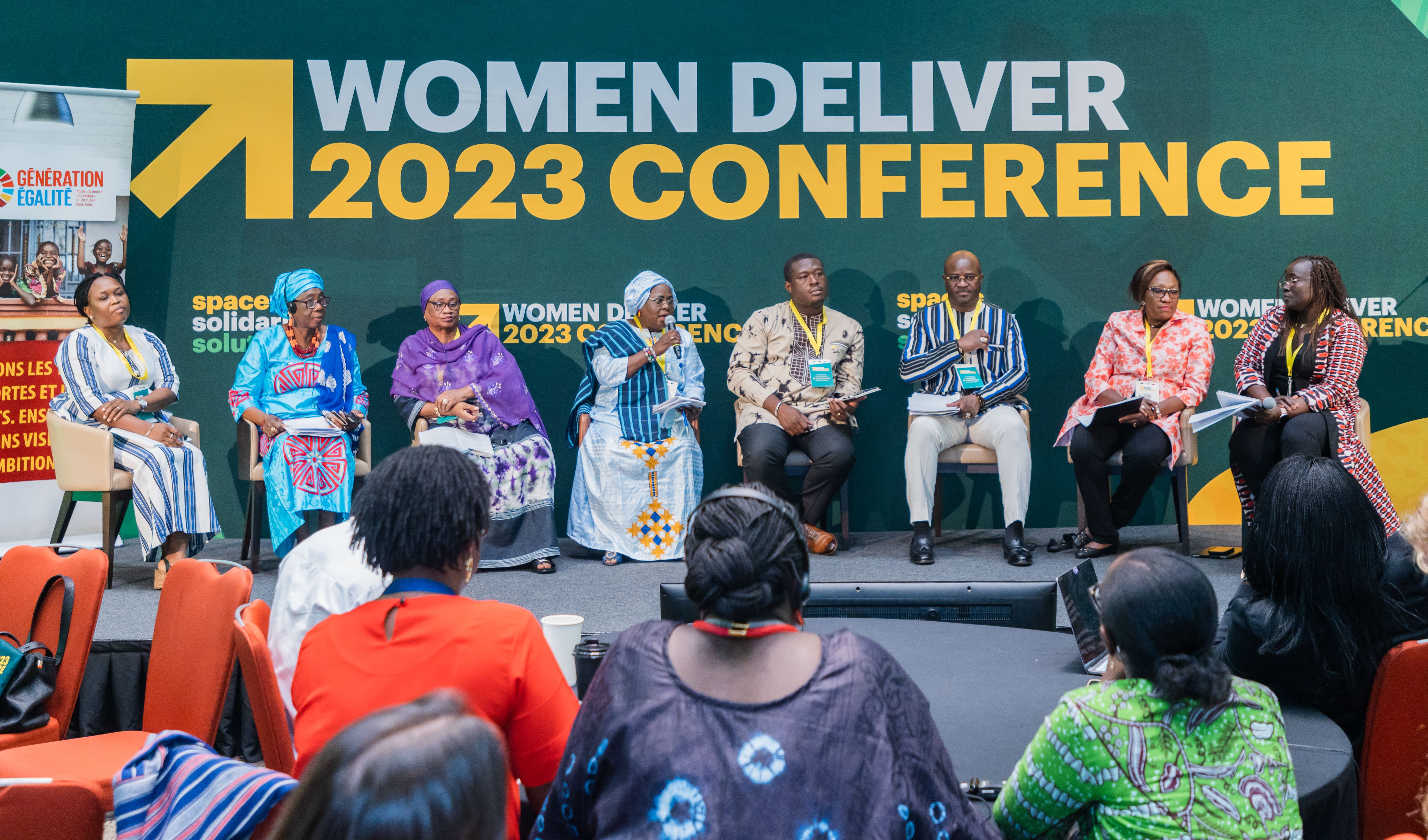Achieving Gender Equality in Burkina Faso: Spotlight on Challenging Issues
This year’s Women Deliver, held in Kigali Rwanda, was the first event of its kind in Africa. Uniting to Combat NTDs was proud to attend, and support an event in conjunction with the former First Lady of Burkina Faso, Mme Sika Kabore, renowned leaders, medical professionals, champions and activists to explore achieving gender equality in Burkina Faso, and call for action and financing for neglected tropical diseases (NTDs).

Like many French-speaking countries in West Africa, Burkina Faso, despite limited resources, has invested heavily in Generation Equality, including sexual and reproductive health, and has made considerable progress in the fight against forgotten and neglected diseases that disproportionately affect women and girls.
At this side event we heard how Burkina Faso is progressing towards gender equality by tackling gender-based violence, gynaecological cancers, and NTDs including genital schistosomiasis (FGS), a debilitating disease estimated to affect over 50 million women and girls across Africa.
Esteemed panellists and contributors included:
- Mme Secretary General of the Ministry of Health of Burkina Faso, Dr Estelle Edith Dabire Dembele representing the former First Lady of Burkina Faso, Mme Sika Kabore
- H.E. Dr Isatou Touray, Former Vice President of Republic of The Gambia
- Professor Charlemagne Ouedraogo, Former Minister of Health of Burkina Faso and gynecologist
- Mme Mariam Lamizana, former Women’s Promotion Minister, champion against FGM and President of CI-AF
- Dr Euphrasie Adjami, gynecologist, focal point of Generation Equality
- Mme Mariam Nonguierma, midwife, President of SRHR/NGO Coalition
- Dr Narcisse Salembere, Executive Director of the KIMI Foundation and
- Cecile Thiombiano, Advocacy Coordinator on SRHR for Africa Medecins du Monde-F
Burkina Faso has achieved considerable progress on diseases disproportionately affecting women and girls, like NTDs, and has invested heavily in sexual and reproductive health and family planning, achieving noteworthy progress. Burkina Faso decreased their soil transmitted helminths (STH) prevalence to <2% after ≥5 years of providing preventive chemotherapy, and eliminated Guinea worm disease in 2011.
Professor Ouedraogo, Former Minister of Health told us,
"NTDs have a significant impact on women's health, education and employment To achieve gender equality, we must include NTDs in health policies and programmes, ensuring equitable access to prevention, screening, treatment and follow-up.”
Some NTDs disproportionately affect women, for example female genital schistosomiasis (FGS) can triple the risk of HIV. Scaling up NTD programmes can help to achieve SDGs on gender equality. Dr Euphrasie Adjami explained, “We need to grant more attention to cancer diagnoses and NTDs because they can affect the fertility of women and affect the most isolated.” Access to sexual and reproductive health and rights enables people, particularly women, and young people, to have access to education and participate in the formal labour market.
We also heard about progress in the Republic of The Gambia from H.E Dr Isatou Touray, Former Vice President of Republic of The Gambia, where 14 NTDs are currently a priority. In 2012, 1.2 million people were at risk of getting an NTD in The Gambia, by 2021 this figure reduced to 500 thousand people. This is a reduction of 60%! H.E. Dr Isatou Touray shared this rallying call at the event,
"I am a Doctor. I am a feminist. But I have realised that the rights of women are being neglected. We want to see NTDs included in funds. We want to see NTDs integrated into services.”

Pictured: Mme Secretary General of the Ministry of Health of Burkina Faso, Dr Estelle Edith Dabire Dembele representing the former First Lady of Burkina Faso, Mme Sika Kabore, H.E. Dr Isatou Touray, Former Vice President of Republic of The Gambia, Mme Mariam Lamizana, former Women’s Promotion Minister, champion against FGM and President of CI-AF, Mme Mariam Nonguierma, midwife, President of SRHR/NGO Coalition, Dr Narcisse Salembere, Executive Director of the KIMI Foundation, Professor Charlemagne Ouedraogo, Former Minister of Health of Burkina Faso and gynecologist, Dr Euphrasie Adjami, gynecologist, focal point of Generation Equality, and Cecile Thiombiano, Advocacy Coordinator on SRHR for Africa Medecins du Monde-F